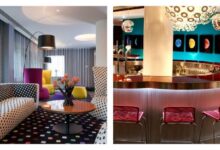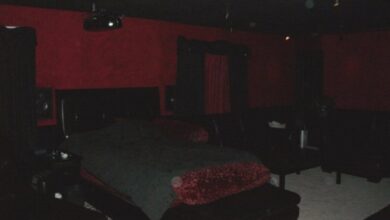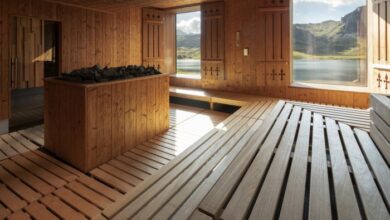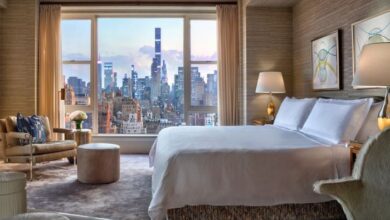Best Hotels With In-Room Office Setups For Remote Work
As Best Hotels with In-Room Office Setups for Remote Work takes center stage, the world of remote work is evolving, and so are the needs of traveling professionals. With the rise of remote work, many hotels are adapting to provide the perfect blend of comfort and productivity. The demand for in-room office setups is soaring, as remote workers seek spaces that allow them to maintain efficiency while away from home.
The ideal in-room office is more than just a desk; it’s a thoughtfully designed workspace that caters to the unique needs of those working remotely. With ergonomic considerations and essential tech amenities, these hotel rooms are becoming sanctuaries for business travelers, making it easier to stay productive on the go.
Overview of Remote Work Trends
The landscape of work has transformed dramatically in recent years, with remote work becoming a prominent feature in many industries. The COVID-19 pandemic acted as a catalyst, shining a spotlight on the viability and necessity of working from home. This shift has significantly influenced hotel accommodations, as more travelers seek spaces that can double as both a retreat and a productive workspace.
As of 2023, studies indicate that over 30% of the global workforce now engages in remote work, a number that is expected to rise in the coming years. A significant percentage of these remote workers prioritize having dedicated in-room office setups while traveling, as it enhances their productivity and comfort. Gone are the days of merely seeking a place to sleep; today’s remote workers look for hotels that offer amenities conducive to work, including desk space, reliable internet access, and ergonomic seating.
Impact of Remote Work on Hotel Accommodations
The rise of remote work has led to a marked change in the types of accommodations that hotels provide. As hotels adapt to the needs of remote workers, certain features have become increasingly sought after. These features not only enhance the overall experience but also ensure that guests can efficiently manage their work tasks while away from home. Key aspects of this trend include:
- Dedicated Workspace: Hotels are now designing rooms with specific areas designated as workspaces. This includes desks with adequate lighting and comfortable chairs that encourage long hours of productivity.
- High-Speed Internet: Reliable, high-speed internet has become a non-negotiable requirement for traveling professionals. Many hotels have upgraded their internet services to accommodate multiple devices and high-demand tasks.
- Tech-Friendly Amenities: Properties are increasingly offering smart TVs, USB charging ports, and other technology-focused amenities to enhance the work experience for remote workers.
- Quiet Zones: Many hotels are emphasizing soundproof rooms or designated quiet zones to ensure that remote workers can concentrate without interruptions.
- Flexible Check-In and Check-Out: Understanding the varying schedules of remote workers, hotels are offering more flexible options for checking in and out, allowing guests to better manage their time.
In addition to these features, many hotels have recognized the importance of blending leisure with work. Guests appreciate spaces that allow them to unwind after a productive day, further motivating hotels to create environments that balance work and relaxation.
Features of Ideal In-Room Office Setups
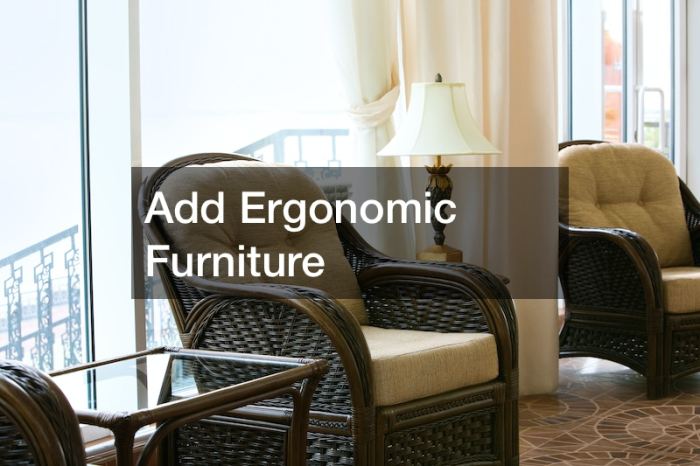
Source: amazonaws.com
An effective in-room office setup is essential for remote workers who seek comfort and productivity while traveling. In response to the growing trend of remote work, hotels are increasingly recognizing the need to provide accommodations that cater to business travelers. An ideal workspace should offer not only functionality but also an environment that promotes creativity and focus.Designing an office space within hotel rooms requires careful consideration of several ergonomic factors to enhance productivity.
A well-thought-out setup can minimize discomfort and allow for extended periods of work without the physical strain commonly associated with traditional office environments. Factors such as chair height, desk position, and lighting must all be optimized for the best experience.
Ergonomic Considerations
Creating an ergonomic office space in hotel rooms involves arranging furniture and equipment in a way that supports the natural posture of the body. Key elements to consider include:
- Adjustable Chair: A chair that supports the lower back and allows for adjustments in height is crucial for comfort during long work hours.
- Desk Height: The desk should be at an appropriate height to prevent strain on the wrists and arms when typing.
- Lighting: Natural light is ideal, but adjustable task lighting can help reduce eye strain during nighttime work.
- Space for Movement: Sufficient room to move around prevents stiffness and encourages short breaks for stretching.
Essential Tech Equipment
The inclusion of appropriate technology in a hotel room office setup is vital for seamless work processes. Essential tech equipment typically found in these setups includes:
- High-Speed Internet: Reliable and fast Wi-Fi is a must for video conferencing and downloading large files.
- Printer/Scanner: Access to a multifunction printer can be important for those needing hard copies or scanned documents.
- Charging Stations: Multiple outlets and USB ports allow for easy charging of devices without clutter.
- Noise-Canceling Headphones: These can be invaluable for maintaining focus in potentially noisy environments.
- External Monitors: Larger screens enhance productivity by providing more screen real estate for multitasking.
Top Hotels with Outstanding In-Room Office Setups
As remote work continues to gain popularity, many hotels are adapting to the needs of traveling professionals by enhancing their in-room office setups. These hotels not only provide a comfortable stay but also create a conducive environment for work, allowing guests to balance productivity with relaxation. Below, we explore some of the best hotels that are renowned for their exceptional in-room office facilities.
Curated List of Hotels with Exceptional Remote Work Facilities
Finding the right hotel that caters to both comfort and work requirements is crucial for remote workers. Below is a selection of hotels that have been praised for their in-room office setups, specifically designed to meet the needs of those working away from home.
-
The Ritz-Carlton, New York Central Park
This luxury hotel offers spacious rooms equipped with large desks, ergonomic chairs, and high-speed internet. Guests appreciate the tranquil views of Central Park, which provide a refreshing backdrop during breaks. One guest reported, ”
The ability to work with such a stunning view made my remote work experience delightful and invigorating.
”
-
Hyatt Centric, Key West
Known for its vibrant atmosphere, the Hyatt Centric features rooms with comfortable workspaces and easy access to power outlets. The hotel also offers a dedicated co-working area, encouraging collaboration among guests. A visitor mentioned, ”
The co-working space was a game-changer for networking while still getting my tasks done.
”
-
Marriott Marquis, San Francisco
This hotel stands out with its modern design and tech-savvy rooms that include adjustable desks and ample lighting. The high-speed internet and business center provide all necessary tools for remote work. A satisfied guest remarked, ”
Every detail was designed for productivity; I felt as though I had my own office away from home.
”
-
W Hotel, Austin
The W Hotel combines trendy decor with work-friendly amenities. Each room has a designated workspace equipped with USB ports and a comfortable chair, while the hotel’s lounge area encourages casual meetings. One guest stated, ”
The atmosphere was inspiring, and the facilities could not have been better for my work needs.
”
-
Four Seasons, Seoul
This hotel offers an exceptional level of luxury, with rooms featuring expansive desks and dedicated tech support. Guests can enjoy high-speed internet and a quiet atmosphere, making it ideal for focused work. A review highlighted, ”
The attentive staff and superb facilities allowed me to accomplish what I needed effortlessly.
”
Comparing Different Hotel Chains
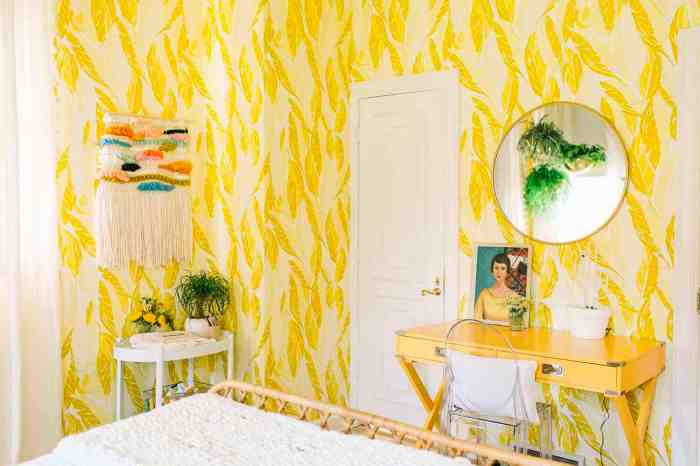
Source: thebudgetdecorator.com
The landscape of remote work has led many hotel chains to enhance their offerings to accommodate professionals seeking an effective workspace away from home. As remote work becomes more prevalent, hotels are adapting to provide facilities that meet the needs of traveling workers. A comparison of major hotel chains reveals significant differences in their in-room office setups, pricing, and amenities tailored for remote workers.Hotel chains have diversified their approaches to creating comfortable and productive in-room office setups.
Certain brands focus on premium offerings, while others target affordability without compromising functionality. Below is a comparison of several prominent hotel chains, showcasing their unique features and how they cater to remote professionals.
Comparison of Hotel Chains
To better understand how different hotel chains accommodate remote workers, we can examine their offerings based on several key criteria, including pricing, amenities, and accessibility.
| Hotel Chain | Pricing (Average Nightly Rate) | Amenities | Accessibility |
|---|---|---|---|
| Marriott | $150 – $350 | Spacious work desks, high-speed Wi-Fi, ergonomic chairs, and business centers | Multiple locations in urban and suburban areas |
| Hilton | $120 – $300 | Flexible workspace, soundproof rooms, complimentary printing, and tech support | Located in major cities and airports |
| Hyatt | $130 – $320 | Dedicated office spaces, high-speed internet, and meeting rooms available | Accessibility in business districts and popular tourist locations |
| InterContinental | $200 – $400 | Premium workspace setups, in-room video conferencing, and high-end office supplies | Strategically positioned in metropolitan areas |
This comparison illustrates how major hotel chains prioritize the needs of remote workers. Each chain has its unique positioning, catering to a variety of budgets while enhancing the in-room office experience. With features ranging from high-speed internet to ergonomic workspaces, the hotels provide essential tools for maintaining productivity on the road. In the landscape of remote work, these offerings can significantly impact the overall experience of a traveling professional.
“The right hotel can turn a mundane business trip into a productive and enjoyable experience.”
Tips for Choosing the Right Hotel for Remote Work
As remote work becomes increasingly prevalent, selecting the right hotel with suitable in-room office setups is essential for productivity and comfort. The growing trend of blending work and travel has led many hotels to enhance their offerings for remote workers, making it crucial to evaluate options thoroughly before booking. Here are some strategies to ensure your chosen accommodation aligns with your work needs.When evaluating hotels for remote work, consider multiple factors that contribute to a productive environment.
The right balance of location, ambiance, and additional services can significantly enhance your working experience. Below are key aspects to keep in mind when making your decision.
Evaluating Key Factors for Hotel Selection
To assist in your decision-making process, a checklist may be beneficial. This checklist encompasses the essential criteria you should evaluate before booking a hotel, ensuring that your remote work experience is seamless and enjoyable.
- Location: Choose a hotel in a safe area with easy access to amenities such as coffee shops, restaurants, and coworking spaces. Proximity to public transport or airports can also be advantageous for convenience.
- Ambiance: Look for a hotel that offers a quiet and comfortable atmosphere. A tranquil environment can significantly enhance focus and reduce distractions while working.
- In-Room Office Setups: Assess the availability of a dedicated workspace, ergonomic furniture, reliable Wi-Fi, and adequate lighting. These features can directly affect your comfort and productivity levels.
- Additional Services: Consider hotels that provide business services such as printing, meeting rooms, and tech support. These facilities can be invaluable for remote workers needing to collaborate or meet clients.
- Review Policies: Familiarize yourself with the hotel’s cancellation policies, check-in/check-out times, and additional fees. Understanding these terms can help you avoid surprises during your stay.
“Choosing the right hotel is not just about comfort; it’s about creating an environment that fosters productivity and well-being for remote work.”
Enhancing Productivity While Staying in Hotels
Staying productive while working remotely from a hotel can be challenging, given the myriad of distractions and the unfamiliar environment. However, with the right strategies and practices, you can create an effective workspace that maximizes your output. This section discusses methods to cultivate productivity, manage distractions, and establish a comfortable office setup within hotel rooms.
Managing Distractions in Hotel Environments
The hotel environment can be full of potential distractions, from noisy neighbors to the allure of exploring the local area. To combat these distractions, it is essential to develop a focused work atmosphere. Here are some effective methods:
- Establish a Schedule: Create a daily routine similar to your regular work hours. This helps signal when you are “at work” and when you are free to relax or explore.
- Use Noise-Canceling Headphones: Invest in good-quality headphones to block out ambient noise. Listening to soft instrumental music or white noise can enhance concentration.
- Designate a Workspace: Choose a specific area in your hotel room as your office. This area should be free from distractions, ideally with a desk and good lighting.
- Limit Social Media Use: Set specific times for checking social media to prevent constant interruptions throughout the day.
Creating a Focused Work Atmosphere
A focused work atmosphere can significantly enhance productivity. Here are several best practices to consider:
- Optimize Lighting: Utilize natural light where possible, and supplement with adequate task lighting to reduce eye strain.
- Keep Your Space Organized: A tidy workspace reduces stress and enhances focus. Spend a few minutes each day organizing your desk.
- Personalize Your Workspace: Adding personal touches, such as photos or plants, can make the space feel more comfortable and inviting.
- Maintain a Healthy Work-Life Balance: Schedule breaks and avoid overworking. Step outside for fresh air or engage in light exercise to recharge.
Best Practices for Setting Up an Office Space in Hotel Rooms
Setting up an efficient office space in a hotel room requires careful consideration of resources and layout. Here are some practical tips to set up your workspace effectively:
- Choose the Right Room: Opt for a room with a dedicated desk space or a larger area that can be converted into a workspace.
- Bring Essential Equipment: Carry a portable monitor, keyboard, and mouse if necessary. These can make your work setup more comfortable and efficient.
- Ensure Reliable Wi-Fi: Check connectivity options and consider using a mobile hotspot as a backup if hotel internet is unreliable.
- Utilize Power Strips: Bring a multi-port charger or power strip to accommodate various devices and eliminate the hassle of searching for outlets.
“A well-structured workspace can enhance focus, leading to improved productivity and satisfaction while working from a hotel.”
The Future of Hotels and Remote Work
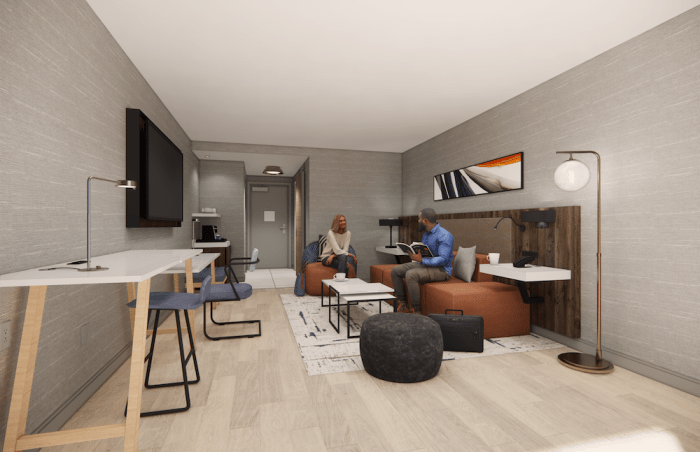
Source: workdesign.com
As the landscape of remote work evolves, hotels are increasingly recognizing the need to adapt their spaces to meet the demands of this new workforce. The future of hotels will be characterized by innovative designs and amenities specifically tailored for remote workers, making it easier for them to balance productivity and comfort during their stay.Emerging trends in hotel design are shifting towards creating multifunctional spaces that cater to a variety of work styles and preferences.
Hotels are investing in technology and ergonomic furniture that allows guests to seamlessly transition from relaxation to work mode. The integration of soundproof areas and high-speed internet access is becoming standard, ensuring that remote workers can focus without distractions.
Trends in Hotel Design for Remote Workers
The importance of creating conducive environments for remote work is becoming evident in the architectural and interior design choices made by hotels. Here are key trends shaping the future of hotel accommodations for remote workers:
- Flexible Workspaces: Many hotels are incorporating flexible areas that can be transformed into collaborative workspaces. These areas often feature movable furniture and can accommodate both solo and group work.
- Enhanced Technology: High-speed Wi-Fi and charging stations have become essential. Hotels are also beginning to invest in virtual meeting technologies to support remote collaboration.
- Soundproofing Solutions: To minimize external noise, hotels are designing rooms with improved sound insulation, ensuring a quiet environment for focused work.
- Biophilic Design: Incorporating natural elements such as plants, natural light, and outdoor views creates a relaxing ambiance that enhances productivity and well-being.
Hotels are adapting to the growing demand for in-room workspaces by not only enhancing existing facilities but also rethinking how space is utilized. Rooms are being equipped with dedicated workstations that feature ergonomic chairs, ample lighting, and easy access to power outlets.
Innovations in In-Room Office Setups
The future of in-room office setups is set to be revolutionized by several potential innovations. These advancements will cater to the evolving needs of remote workers and provide them with an optimal working environment.
- Smart Room Technology: Future hotel rooms may integrate smart technology that allows guests to control lighting, temperature, and entertainment systems directly from their devices, creating a personalized workspace.
- Modular Furniture: The use of modular furniture that can be easily rearranged or configured will provide flexibility for guests, allowing them to create a workspace that suits their individual preferences.
- Collaboration Tools: In-room video conferencing capabilities, along with collaborative software pre-installed on room devices, will facilitate seamless communication for remote teams.
- Wellness Amenities: Hotels may begin to offer wellness amenities, such as meditation apps, fitness equipment, or yoga mats, promoting a balanced lifestyle for remote workers.
Hotels of the future will not only focus on providing a place to stay but will also prioritize creating environments that enhance productivity, well-being, and a sense of community among remote workers. The hospitality industry is poised to embrace this shift, ensuring that every detail caters to the needs of the modern workforce.
Final Review
In conclusion, as remote work continues to reshape the travel industry, hotels with in-room office setups are stepping up to meet the growing demand. From comfortable ergonomics to high-speed connectivity, these features allow remote workers to thrive even while away from their usual work environments. Choosing the right hotel can make all the difference in sustaining productivity and ensuring a pleasant travel experience, ultimately enhancing the balance between work and leisure.
FAQ Corner
What should I look for in an in-room office setup?
Look for ergonomic furniture, reliable high-speed internet, ample charging ports, and necessary tech equipment like printers and scanners.
Do all hotels offer in-room office setups?
No, not all hotels are equipped with in-room office setups. It’s essential to research and choose hotels that specifically advertise these features.
Are in-room office setups available in budget hotels?
Some budget hotels may offer basic office setups, but for more comprehensive amenities, consider mid-range to luxury hotels.
Can I reserve a specific room with an office setup?
While not guaranteed, many hotels allow you to request a room with an office setup during the booking process.
How can I maximize productivity in a hotel room?
To maximize productivity, establish a routine, minimize distractions, and create a dedicated workspace using the hotel’s amenities effectively.
